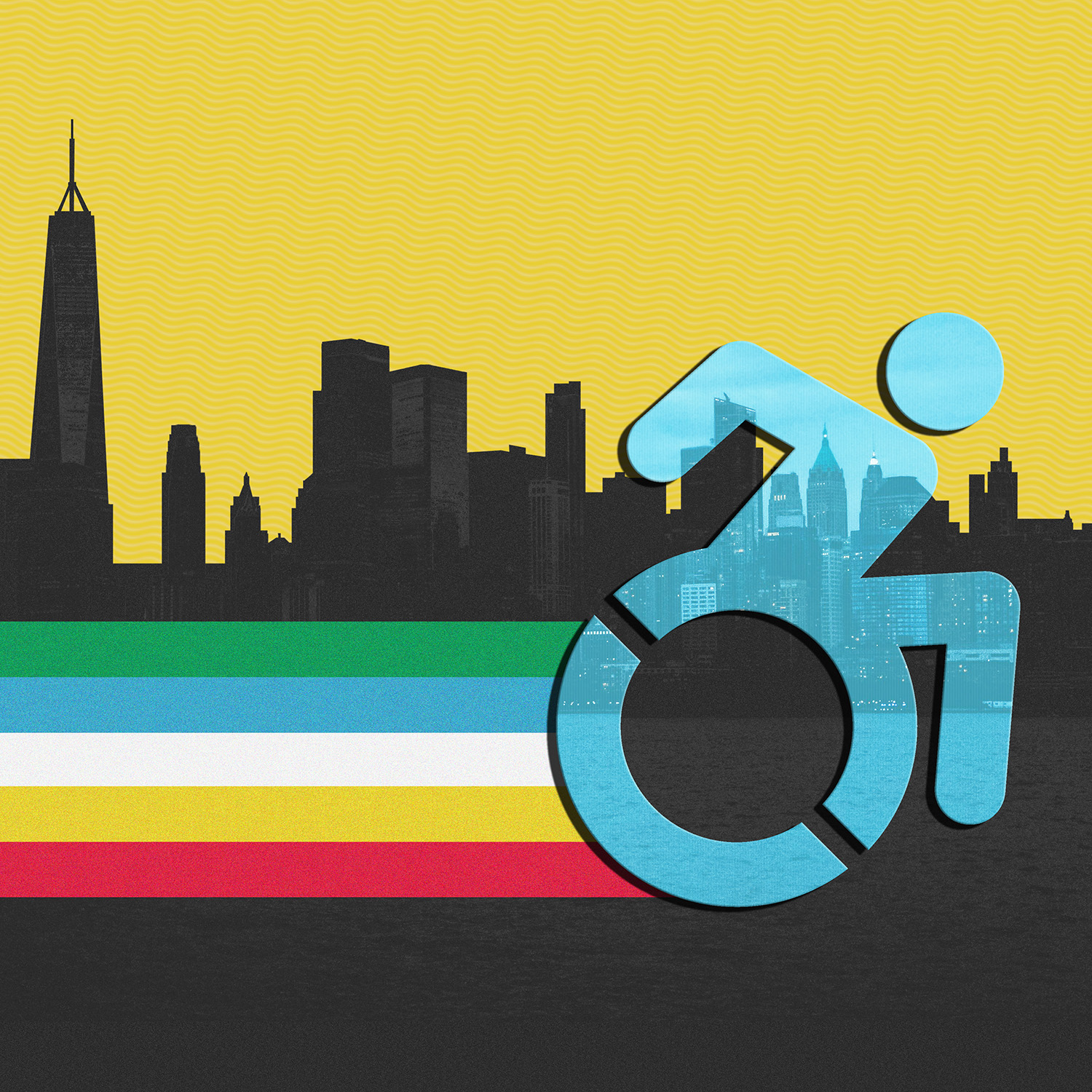For Dustin Jones, July’s Disability Pride Month now represents self-love and acceptance, but it took him discovering his own strength through advocacy and witnessing other disabled people living “amazing” lives.
Initially, Jones was frustrated with himself, having been injured 13 years ago. At the time, Jones knew nothing about disability pride and had no ties to the pride community. Meanwhile, environmental racism made it difficult for Jones, who lives in Southeast Queens, to navigate the dilapidated Jamaica Street area in his hospital wheelchair. He complained, but the situation did not change.
“I feel like there’s just a natural lack of resources available to help black youth feel good about themselves,” Jones says, “and for black people with disabilities, it takes twice as long.”
Eventually, he turned to the civil rights group Disabled In Action for help, which was quickly accepted, and Jones became involved in disability rights activism.
“I became obsessed with it,” he said. Today, Jones serves on the board of directors of the Center for Disability Independence New York (CIDNY) and runs his own organization, United for Equal Access New York, which fights for disability rights in ride-sharing services.
Then-Mayor Bill de Blasio designated July as Disability Pride Month in 2015, marking the 25th anniversary of the passage of the Americans with Disabilities Act (ADA). Approximately 11% of New York City’s population lives with a disability.
MOPD Director Christina Curry, who cut her teeth in the nonprofit sector at the Harlem Center for Independent Living before taking office, said the accessibility victories during her tenure uptown were big wins for the public, even though they were often invisible all along 125th Street and nearby streets, like ramps for parents pushing strollers to use over curb cuts and sidewalk recesses that allow wheels to roll into crosswalks.
“If we make it accessible to the community, it becomes accessible to everyone,” Curry said. [Accessible Pedestrian Signals are] Not just for those who have nothing [or] Even if you have low vision, it now helps others. When you come from a foreign country, you can cross the street safely even if you don’t know how Americans drive. The curb cuts have made it more accessible for everyone. Even if you’re dragging your suitcase and looking for a couple of hotels in Harlem, [it] “If you can get through the curb cut, it’s going to be a lot easier.” While CIDNY Executive Director Dr. Sharon McClennon Weir agrees that disability rights are a universal public good, she also believes race plays a key role in advocacy. She outlined seven key issues: physical health, mental health, housing, education, employment, transportation and voting.
like this:
Like Loading…

